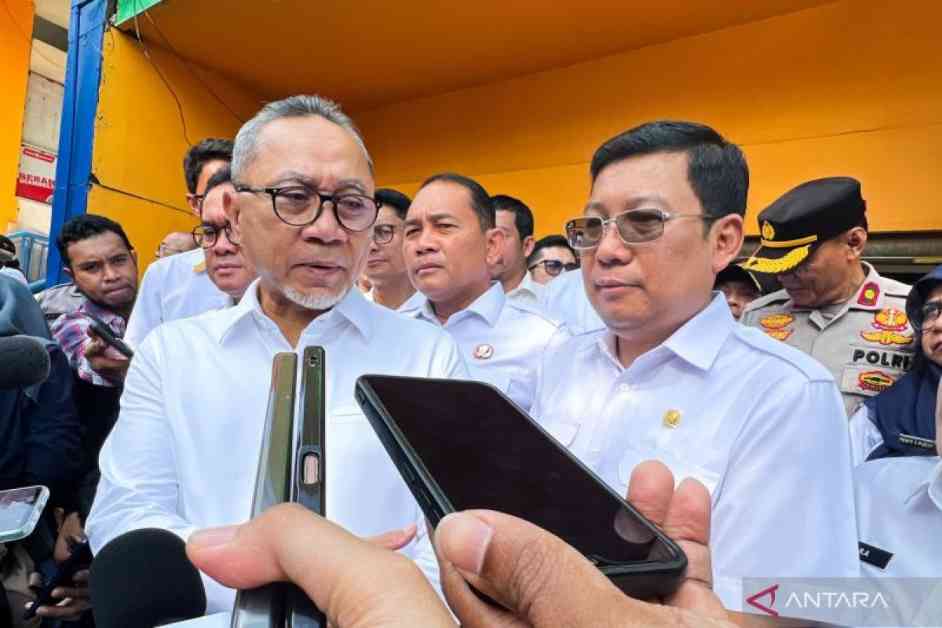President Prabowo Subianto is taking significant steps to boost paddy prices in Indonesia by planning to establish 70,000 Red and White Village Cooperatives. This initiative aims to support farmers and ensure stable pricing for paddy across the country. National Food Agency (Bapanas) head Arief Prasetyo Adi highlighted the importance of these cooperatives during a review of food prices, emphasizing their role in maintaining farmer welfare.
Adi explained that the village cooperatives will play a crucial role in stabilizing paddy prices by purchasing directly from farmers. This proactive approach will prevent price declines that could negatively impact farmers. The ultimate goal is to create a positive impact on the agricultural sector, particularly in rural areas, by ensuring stable and profitable pricing for paddy.
As preparations for establishing the cooperatives are underway, Adi expressed optimism about their potential to absorb farmers’ paddy at government-set prices. This move is crucial in preventing price fluctuations and providing a reliable market for farmers. With the government purchase price for paddy set at Rp6,500 per kilogram, effective January 15, 2025, both government and private millers will have a clear pricing framework to follow.
Minister of Cooperatives, Budi Arie Setiadi, reiterated the government’s commitment to supporting the formation of 70,000 Red and White Village Cooperatives. This initiative is aimed at strengthening the village economy and addressing various challenges in rural areas. Setiadi emphasized the need for cooperatives to drive economic growth at the village level, creating opportunities for job creation and facilitating the distribution of local products.
Supporting Rural Communities Through Cooperative Development
The establishment of Red and White Village Cooperatives is a strategic move to support rural communities in Indonesia. By forming cooperatives, farmers can benefit from collective bargaining power and access to stable markets for their produce. This approach not only safeguards farmers’ livelihoods but also contributes to the overall economic development of rural areas.
Through the development of 70,000 cooperatives, the Ministry of Cooperatives aims to empower local communities and enhance food sufficiency across the country. These cooperatives will serve as essential hubs for aggregating various village products, ensuring a steady supply chain and fair pricing for farmers. By strengthening the cooperative sector, the government is laying a foundation for sustainable economic growth in rural Indonesia.
Driving Economic Growth and Welfare Through Cooperative Enterprises
The government’s focus on creating cooperative enterprises highlights its commitment to driving economic growth and improving welfare in rural areas. By supporting the formation of Red and White Village Cooperatives, policymakers are paving the way for inclusive development that benefits local communities. These cooperatives will not only provide economic opportunities but also foster a sense of community and collaboration among farmers.
Minister Setiadi’s vision for the cooperatives aligns with the broader goal of enhancing food production and promoting self-sufficiency in Indonesia. By leveraging cooperative structures, the government can streamline agricultural processes, reduce inefficiencies, and empower farmers to thrive in a competitive market. Through strategic partnerships and targeted initiatives, the cooperative sector can become a catalyst for sustainable development and poverty alleviation in rural Indonesia.
In conclusion, President Prabowo Subianto’s plan to establish 70,000 Red and White Village Cooperatives signals a new era of economic empowerment and agricultural sustainability in Indonesia. By prioritizing the welfare of farmers and fostering cooperative enterprises, the government is laying a solid foundation for inclusive growth and community resilience. As these cooperatives take shape, they have the potential to transform rural economies, enhance food security, and create a more prosperous future for all Indonesians.






















